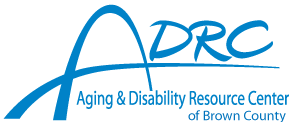Life throws unexpected curve balls and sometimes you may find yourself recovering from an unexpected injury or illness in a hospital or skilled nursing facility. Sometimes, the recovery is planned, such as following a scheduled surgery. Whatever the scenario, it’s important to have a discharge plan in place to ensure you can continue your road to recovery safely and comfortably at home. During your stay, your doctor and the staff will work with you to develop a plan for your discharge. You and your caregiver (a family member or friend who may be helping you), are important members of the planning team. Use this checklist early and often during your stay to assist with your discharge planning and skip any items that don’t apply to you.
- Ask where you’ll get care after you discharge. Do you have options, like home health care? Be sure to tell staff what you prefer.
- Ask the staff about your health condition(s) and what you can do to help yourself get better.
- Ask about problems to watch for and what to do about them. Write down a name and number of a person to call if you have problems.
- If a caregiver will be helping you after discharge, write down their name and phone number.
- Write down your prescription drugs, over-the-counter drugs, vitamins, and herbal supplements. Review the list with staff and make sure you understand what medications you should be taking and when.
- Ask if you’ll need medical equipment, like a walker, wheelchair, shower chair, grab bars, etc. Who will arrange for this? Ask your doctor if they can write an order for any equipment you may need for possible coverage through your insurance.
- Ask if you’re ready to do the activities below and circle ones you need help with. Make sure staff is aware if you don’t feel comfortable completing these tasks independently: Bathing, dressing, using the bathroom, climbing stairs, cooking, grocery shopping, cleaning, paying bills, getting to doctor appointments, and picking up prescriptions.
- Ask staff to show you and your caregiver any other tasks that require special skills (changing a bandage, checking blood sugars, or giving a shot). Make sure your caregiver feels comfortable with the tasks. Write down a name and number of a person you can call if you need help.
- Ask for written discharge instructions that you can read and understand. Ask for a summary of your current health status and any upcoming follow-up appointments you have scheduled.
- Understand that it is your care team’s responsibility to ensure you have a safe discharge plan. Speak up if you don’t feel ready to go home so that they can help address your concerns.
- Contact ADRC of Brown County at (920) 448-4300 if you need assistance with in-home supports, such as locating medical equipment, finding caregivers, etc. to help with your discharge home.




